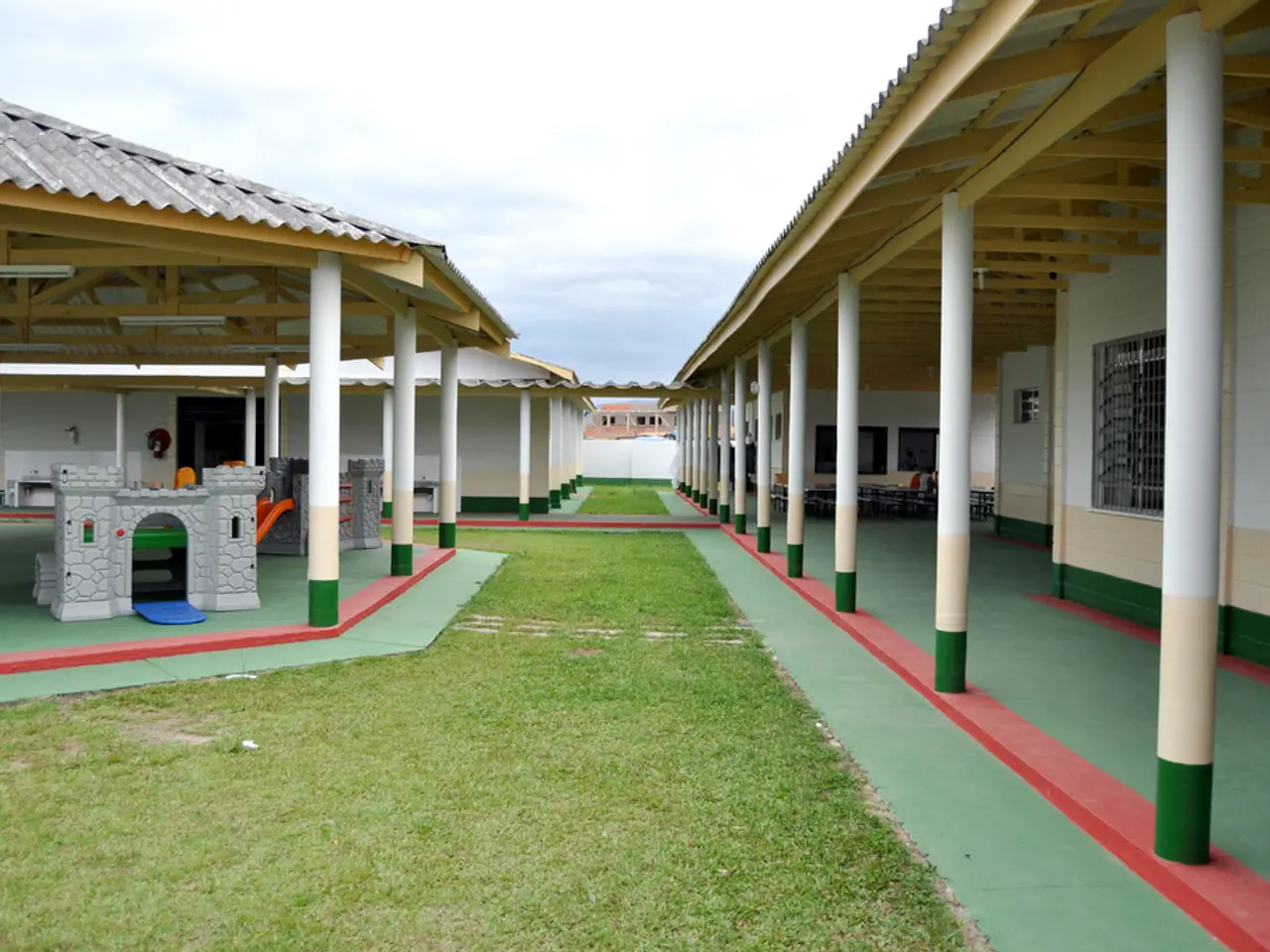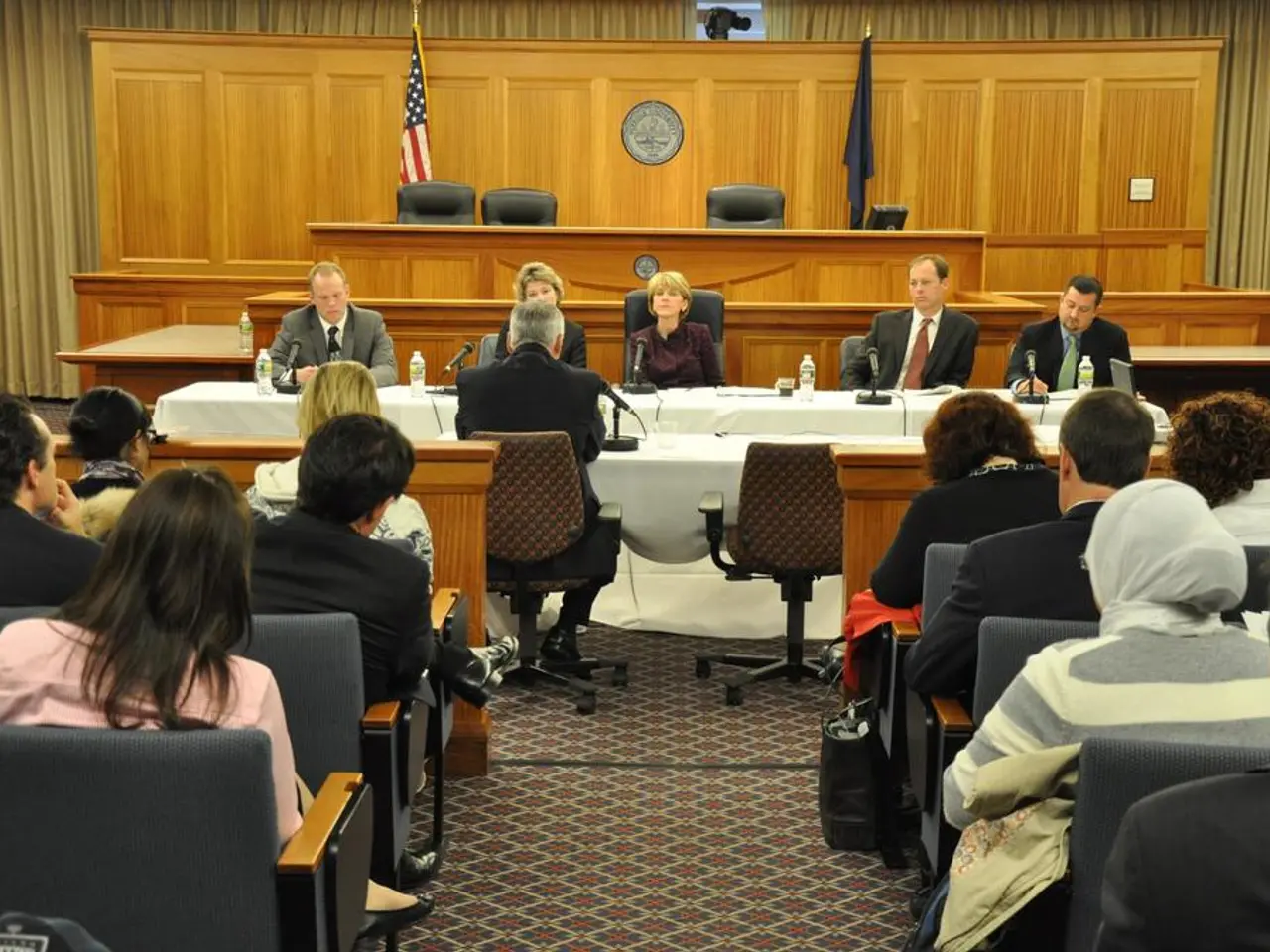Hotel Sector Transforms into New York's Solution for Homelessness Illustrated by These 5 Charts
In a troubling development, New York has seen a significant shift in its approach to homelessness, with hotels increasingly becoming the default response, particularly outside New York City. This trend, driven by soaring rents, shelter closures, and a spike in evictions following the COVID-19 pandemic, has raised concerns about the quality of services and living conditions for those displaced.
According to a joint investigation by ProPublica's Local Reporting Network and other media outlets, nearly half of individuals and families seeking shelter are now placed in hotels by social services agencies. This shift from traditional shelters to hotels has led to a tripling of statewide spending on hotel placements, with hotels outside NYC receiving approximately $420 million from 2017 to 2024.
However, this reliance on hotels as a substitute for shelters has significant downsides. Many placed in hotels do not receive critical services typically provided in shelters, such as meals, help finding permanent housing, child care, or employment support. The state Office of Temporary and Disability Assistance (OTDA) is aware of these gaps and has considered regulatory measures to address them but has yet to formally propose or implement effective solutions.
Inspections and oversight of these hotel placements have not sufficiently ensured that necessary social services accompany housing, contributing to ongoing challenges in addressing homelessness comprehensively. In fact, as of October, about 40% of hotels were either out of date on their inspection or didn't have one listed. Reports of roaches, mold, broken windows, and filthy linens in these hotels are not uncommon.
Moreover, some hotels were subject to over a hundred emergency calls a year for assaults, robberies, mental health crises, overdoses, and other incidents. Numerous examples of families with children living in sordid and dangerous conditions have been found in hotels sheltering homeless families.
In response to these concerns, OTDA has announced that it will formally propose rules this year clarifying that people in hotels must receive the same services as they would receive in shelters. Additionally, OTDA will increase oversight of how social services offices are delivering services to people in hotels.
Despite the challenges, the growing reliance on hotels reflects a reactive strategy driven by housing market pressures and shelter shortages. However, it comes at the cost of reduced access to vital support services, complicating efforts toward long-term stability for those displaced. As the state continues to grapple with homelessness, finding a balance between immediate housing needs and comprehensive support services will be crucial.
[1] ProPublica's Local Reporting Network. (n.d.). New York's Homelessness Crisis: Hotels Are Becoming the Default Response. Retrieved from https://www.propublica.org/article/new-york-hotels-homelessness-crisis [2] New York State Office of Temporary and Disability Assistance. (n.d.). Hotel Placements. Retrieved from https://otda.ny.gov/programs/hotel-placements/ [3] New York State Office of Temporary and Disability Assistance. (n.d.). Hotel Placement Data. Retrieved from https://otda.ny.gov/programs/hotel-placements/data/ [4] New York State Senate. (n.d.). Hotel Placements for Homeless New Yorkers. Retrieved from https://www.nysenate.gov/legislation/bills/2023/s6827 [5] New York State Assembly. (n.d.). Hotel Placements for Homeless New Yorkers. Retrieved from https://nyassembly.gov/leg/?default_fld=&leg_video=&bn=A08999&term=2023&Summary=Y&Actions=Y&Text=Y&Votes=Y&Memo=Y&Floor=Y&Amendments=Y&A08999.pdf
- The investigation by ProPublica's Local Reporting Network and other media outlets revealed that half of individuals and families seeking shelter in New York are now placed in hotels by social services agencies.
- Despite the tripling of statewide spending on hotel placements, many individuals placed in hotels do not receive critical services such as meals, help finding permanent housing, child care, or employment support.
- As of October, about 40% of hotels housing the homeless were either out of date on their inspection or didn't have one listed, with reports of roaches, mold, broken windows, and filthy linens.
- In some hotels, mental health crises, overdoses, and other incidents were common, with numerous examples of families with children living in sordid and dangerous conditions.






